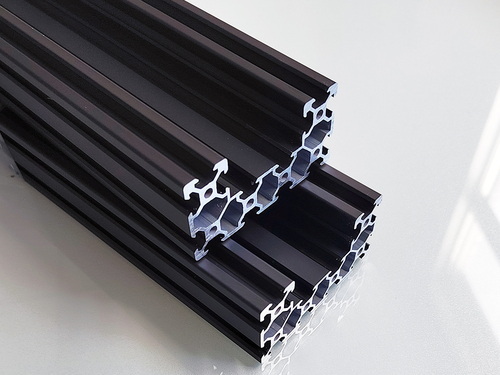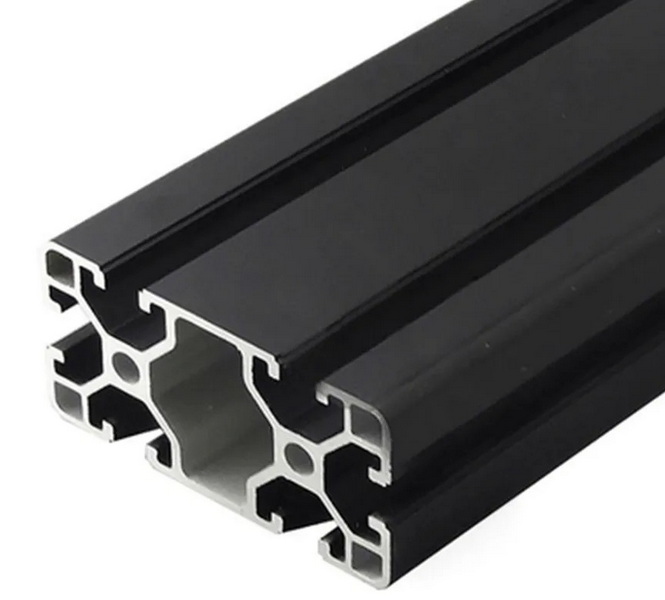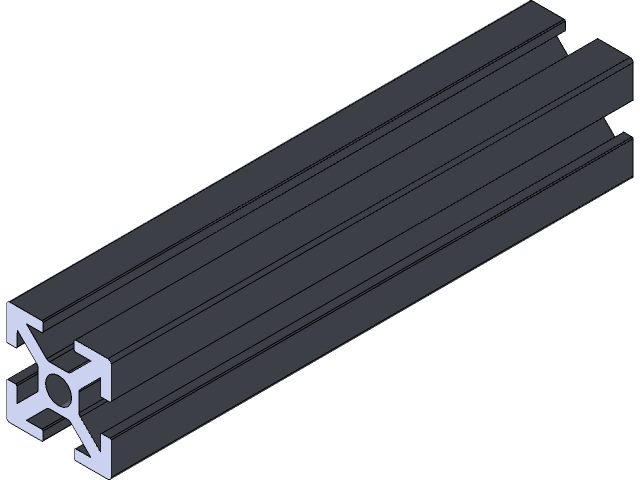Content Menu
>> Understanding Aluminum Extrusion
● The Aluminum Extrusion Process
● Key Benefits of Custom Aluminum Extrusion
● Applications of Custom Aluminum Extrusion
● Specific Examples of Applications
>> Construction Industry
>> Automotive Sector
>> Aerospace Applications
>> Electronics Industry
● The Importance of Quality Control
● Choosing the Right Aluminum Profile
● Why Choose Custom Aluminum Extrusion in Atlanta?
● Innovations in Aluminum Extrusion Technology
● Conclusion
● FAQ
>> 1. What industries commonly use custom aluminum extrusions?
>> 2. How does the custom aluminum extrusion process work?
>> 3. What are the environmental benefits of using aluminum?
>> 4. Can I get custom shapes made with aluminum extrusion?
>> 5. How do I choose the right profile for my project?
Custom aluminum extrusion is a manufacturing process that shapes aluminum into specific profiles to meet the unique needs of various industries. In Atlanta, this process has gained significant traction due to its versatility, efficiency, and numerous benefits. This article explores the key advantages of custom aluminum extrusion in Atlanta, highlighting its applications, processes, and why businesses should consider it for their manufacturing needs.

Understanding Aluminum Extrusion
Aluminum extrusion involves forcing heated aluminum alloy through a die that shapes it into the desired profile. This method allows for the production of complex shapes that are lightweight yet strong, making aluminum an ideal material for various applications. The extrusion process can be tailored to create custom profiles that fit specific project requirements.
The Aluminum Extrusion Process
The process of custom aluminum extrusion consists of several stages:
1. Billet Preparation: Aluminum billets are preheated to make them malleable. This heating process is crucial as it ensures that the aluminum can be easily shaped without cracking or breaking.
2. Extrusion: The heated billet is placed in a press where a hydraulic ram forces it through a die. The die determines the final shape of the extruded product, allowing for a wide variety of profiles.
3. Cooling: After exiting the die, the extruded material is cooled using water or air to solidify its shape. Proper cooling is essential to maintain dimensional accuracy and surface quality.
4. Cutting and Finishing: Once cooled, the extruded profiles are cut to length and may undergo additional finishing processes like anodizing or painting. These finishing touches enhance the aesthetic appeal and functional properties of the extrusions.
Key Benefits of Custom Aluminum Extrusion
1. Lightweight and Strong
One of the most significant advantages of aluminum is its strength-to-weight ratio. Aluminum is much lighter than steel but still provides excellent strength, making it ideal for applications where weight reduction is crucial. This property not only reduces shipping costs but also enhances the overall performance of the final product.
2. Corrosion Resistance
Aluminum naturally forms a protective oxide layer when exposed to air, which helps prevent corrosion. This characteristic makes custom aluminum extrusions particularly suitable for outdoor applications and environments prone to moisture, ensuring longevity and durability.
3. Design Flexibility
Custom aluminum extrusion allows for endless design possibilities. Manufacturers can create intricate shapes and profiles that meet specific functional and aesthetic requirements. This flexibility enables designers to innovate without being limited by standard shapes or sizes.
4. Cost-Effectiveness
While the initial tooling costs for custom extrusions can be higher than standard products, the overall cost savings in material efficiency and reduced waste often outweigh these expenses. Custom extrusions optimize material usage, minimizing scrap and maximizing yield.
5. Sustainability
Aluminum is highly recyclable, making it an environmentally friendly choice for manufacturers. The recycling process requires only a fraction of the energy needed to produce new aluminum from ore, contributing to sustainability goals in manufacturing.
Applications of Custom Aluminum Extrusion
Custom aluminum extrusions are used across various industries due to their versatility:
- Construction: Used in window frames, curtain walls, and structural components.
- Automotive: Lightweight parts that improve fuel efficiency and performance.
- Aerospace: Components that require high strength-to-weight ratios.
- Electronics: Heat sinks and housings that benefit from thermal conductivity.
- Consumer Products: Custom shapes for furniture, appliances, and more.

Specific Examples of Applications
Construction Industry
In construction, custom aluminum extrusions are utilized in various applications such as:
- Window Frames: Providing strength while allowing for large glass panels.
- Curtain Walls: Offering lightweight yet robust solutions for building facades.
- Structural Supports: Used in beams and trusses where weight reduction is essential without compromising structural integrity.
Automotive Sector
The automotive industry benefits significantly from custom aluminum extrusion:
- Chassis Components: Lightweight extruded parts help improve fuel efficiency.
- Heat Exchangers: Aluminum's thermal conductivity makes it ideal for radiators and cooling systems.
- Interior Trim Pieces: Custom designs enhance aesthetics while maintaining functionality.
Aerospace Applications
In aerospace, where every ounce counts:
- Aircraft Frames: Custom extrusions provide necessary strength while minimizing weight.
- Interior Components: Lightweight materials contribute to overall aircraft efficiency.
Electronics Industry
For electronics manufacturers:
- Heat Sinks: Custom extrusions efficiently dissipate heat from electronic components.
- Enclosures: Providing protection while allowing for optimal thermal management.
The Importance of Quality Control
Quality control is paramount in custom aluminum extrusion processes. Ensuring that each profile meets stringent specifications involves several measures:
1. Material Testing: Raw materials are tested for purity and strength before processing.
2. Dimensional Inspection: Each batch of extrusions undergoes dimensional checks to ensure they meet design specifications.
3. Surface Quality Assessment: Visual inspections are performed to identify any surface defects or irregularities.
4. Performance Testing: In some cases, finished products undergo performance tests to ensure they meet industry standards.
Choosing the Right Aluminum Profile
Selecting the appropriate profile for your project is crucial for optimal performance. Common profiles include:
- Bars
- Angles
- Tubes (round and square)
- Channels
- T-Slot extrusions
Each profile serves different functions and can be customized further based on specific requirements.
Why Choose Custom Aluminum Extrusion in Atlanta?
Atlanta boasts a robust manufacturing sector with access to advanced technologies and skilled professionals specializing in custom aluminum extrusion. By partnering with local suppliers, businesses can benefit from:
- Quick Turnaround Times: Proximity allows for faster production and delivery times.
- Local Expertise: Knowledgeable teams can provide insights into design optimization and material selection.
- Support for Local Economy: Choosing local suppliers helps strengthen the community by promoting job growth and economic stability.
Innovations in Aluminum Extrusion Technology
The field of aluminum extrusion continues to evolve with technological advancements:
1. 3D Printing Integration: Some manufacturers are exploring ways to integrate 3D printing with traditional extrusion methods to create hybrid components that leverage both technologies' strengths.
2. Advanced Alloys: New aluminum alloys are being developed specifically for extrusion processes, enhancing properties such as strength, corrosion resistance, and weldability.
3. Automation in Production: Increased automation in extrusion processes improves efficiency while reducing labor costs and human error.
4. Sustainable Practices: Many companies are adopting sustainable practices in their operations, such as using renewable energy sources or implementing closed-loop recycling systems within their manufacturing processes.
Conclusion
Custom aluminum extrusion offers numerous benefits that make it an attractive option for manufacturers in Atlanta. From its lightweight yet strong characteristics to its corrosion resistance and design flexibility, aluminum extrusions provide solutions tailored to meet diverse industry needs. As businesses continue to seek innovative ways to enhance their products while maintaining cost-effectiveness and sustainability, custom aluminum extrusion will play an increasingly vital role.

FAQ
1. What industries commonly use custom aluminum extrusions?
Custom aluminum extrusions are widely used in industries such as construction, automotive, aerospace, electronics, and consumer products due to their versatility and strength.
2. How does the custom aluminum extrusion process work?
The process involves heating an aluminum billet until it becomes malleable, then forcing it through a die using a hydraulic press to create specific shapes.
3. What are the environmental benefits of using aluminum?
Aluminum is highly recyclable, requiring less energy for recycling compared to producing new aluminum from raw materials, making it an eco-friendly choice.
4. Can I get custom shapes made with aluminum extrusion?
Yes, one of the main advantages of custom aluminum extrusion is the ability to create unique shapes tailored to specific project requirements.
5. How do I choose the right profile for my project?
Choosing the right profile depends on your project's functional requirements; consulting with an experienced supplier can help determine the best option based on your needs.






















